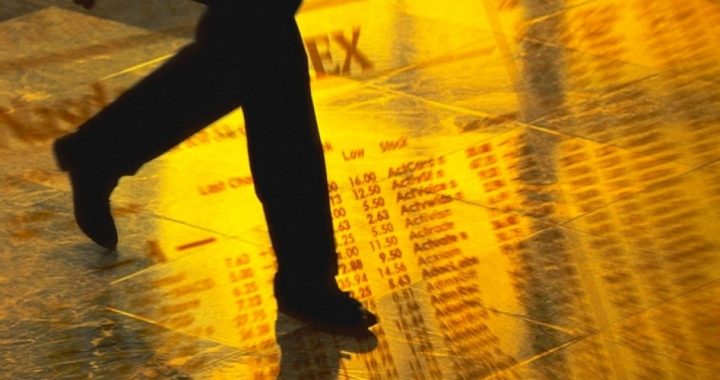
The latest Empire State Manufacturing Survey issued by the New York Federal Reserve Bank on Monday confirms an increasingly ominous economic trend: The fourth consecutive monthly decline in its index is the longest since early 2009.
Its authors didn’t even try to sugarcoat it:
Business activity declined for a fourth consecutive month … new orders and shipments declined … labor market conditions continued to deteriorate, with survey indicators pointing to a decline in both employment levels and hours worked.
Disappointing results from retailers such as Best Buy, JCPenney, Macy’s, and Sears, among others, are a harbinger for further declines even as the holiday shopping season approaches. The Cowen Group, a large financial services company, noted that retail traffic for the week ending November 7 was down almost 10 percent from a year ago (which was down from the previous year), and predicted another decline of between 9 and 11 percent in the second week in November.
Nomura, a Japanese financial holding company, blames “weak tourist traffic” and “fickle consumer spending behavior” for the declines.
Bank of America blames the weather. It notes that temperatures in October averaging 57 degrees reflecting “abnormal weather patterns” has led to a slump in sales of cold weather gear. For the month retail sales dropped three percent, month-over-month.
Whether it’s the weather or bad consumer attitudes, inventories aren’t building at the usual rate, and it’s affecting global shipping. The ratio of inventories to sales is approaching levels not seen since 2001 and retailers are cutting back. Zepol Corporation analyzes trade data through millions of bills of lading and just reported that, for the first time in at least a decade, imports fell in both September and October at each of the three busiest U.S. seaports: Los Angeles, Long Beach, and New York. Between August and October, usually the busiest time of the year, imports fell by more than 10 percent.
One of those affected is Fernando Rios, who owns Orion Intermodal, which runs eight trucks that move shipping containers from the docks in Port Elizabeth, New Jersey to nearby warehouses. September, said Rios, was the slowest he’s seen in 25 years, adding, “At this time it’s supposed to be very busy, but it’s not.” A year ago he was moving 25 to 30 containers a week. This year he is moving just eight to 12.
The big picture painted by the Labor Department confirms the experience of Rios: The trucking industry as a whole has lain off 2,800 jobs in that same time period.
And it’s not just the United States that’s seeing the slowdown. World trade volume has begun to decline for the first time since the start of the Great Recession. The Baltic Dry Index (BDI), a daily economic indicator issued by the London-based Baltic Exchange, provides an assessment of economic activity by measuring the cost of moving by sea such raw materials as coal, iron ore, and grain. In early August the BDI peaked at 1,200. On Monday the index was 550.
And then there’s Paris. Three days after terrorists gunned down citizens there the Group of 20 (G20), meeting in Antalya, Turkey, has moved its focus from trying to stimulate their economies to trying to keep them from collapsing altogether. Citibank told its clients on Monday that, thanks to the surprise attacks last week, consumer confidence could fall sharply, perhaps more than in the aftermath of the September 11 attacks:
It is probable that the impact could be more severe this time, especially if there were more attacks and therefore greater disruption to business activity from enhanced border controls.
The slowing Chinese economy, news that Japan has just entered recession, student loans topping $1.2 trillion in the United States and throttling new household formations, unemployment far higher than reported thanks to part-time and discouraged workers not being counted, corporate profits coming down, real U.S. GDP growth turning negative in the last quarter, and numerous other leading economic indicators such as the Empire State Index, all point to further declines in the U.S. economy.
It appears that the hunkering down before the next recession hits is already taking place.
A graduate of an Ivy League school and a former investment advisor, Bob is a regular contributor to The New American magazine and blogs frequently at www.LightFromTheRight.com, primarily on economics and politics. He can be reached at [email protected].



